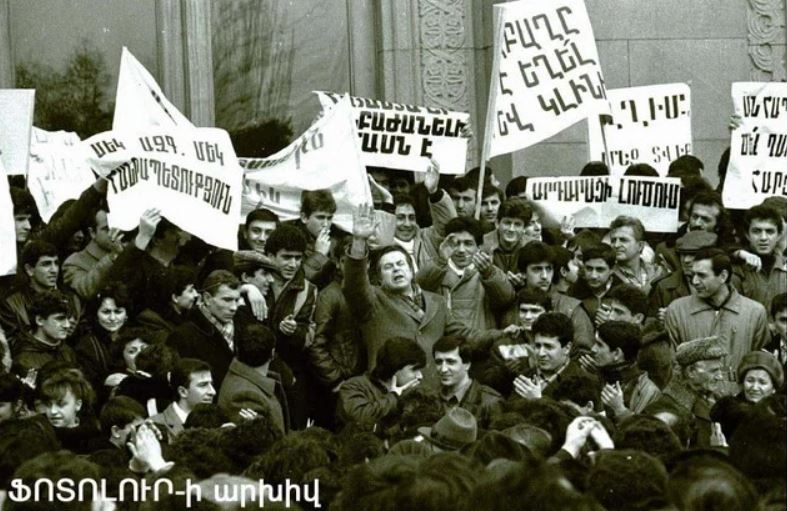What stage have we gone through in 34 years?
Azerbaijan has declared the second and third presidents of Armenia wanted. This step is directly related to the 34th anniversary of the Karabakh movement, which was celebrated in Artsakh on Sunday. The Military Prosecutor’s Office of Azerbaijan stated that Kocharyan and Sargsyan have been inciting enmity between the Armenian and Azerbaijani people since February 1988 and promoting the secession of the Nagorno-Karabakh Republic from the Azerbaijani SSR. According to Azerbaijani law enforcement, they should be prosecuted for these “crimes.”
Of course, the statement is purely propaganda and will not have any legal consequences. But such a political step, apparently, requires a political response from our state, because the problem here is absolutely not in sympathy or dislike for individuals. I think it would be desirable for us to formulate a clear position. It should be clearer than in the statement of the RA Ministry of Foreign Affairs. It should be said if today’s Armenia considers that the Karabakh movement was a struggle for the liberation of a part of our historical homeland, for the self-determination of the Armenians living in Artsakh, or was it really a condemnable crime? In short, a state approach is needed here. But the problem is that most of our citizens are also at least indifferent to this issue.
This is dangerous because it indicates the low level of mobilization of our society. And the roots of that situation are deep. To understand the problem, we must go back to the 1960s and 1970s, when it became clear that the project of “forming a new man” had failed in the Soviet Union and, in particular, in Soviet Armenia.
Read also
“Romantic” notions that it was possible to create a new, “exploitable” economy and a new society through violence and terror, those dreams could never come true. There have always been shady relationships that, in one way or another, bypassed formal coercion and reflected people’s real interests. This, in the end, led to the flourishing of corruption and the radical contradiction between official slogans and real life, which in turn led to a dichotomy of thinking. On the one hand, what was to be said during “official” contacts, in an environment where “untrustworthy” people could be, on the other hand, what could be said in the company of close people. Such a dichotomy inevitably led to disbelief and cynicism.
In the aftermath of the events of February 20, 1988, it seemed that this cynicism was being overcome, that society was capable of mobilizing. But after the 1994 ceasefire, the dilemma re-emerged. If in the Soviet era the “inevitable victory of communism in the whole world” was to be spoken of “officially,” then the official theme of independent Armenia was “patriotism.” In the interviews, from the podiums, and during toasts, loud words were heard about “national unity,” “the most powerful army in the region,” “our brothers and sisters in Artsakh,” and in a narrower circle that pathos was lost, and the speakers took bribes, pocketed money from the budget, or did not pay taxes.
The following judgment was quite normal at the household level: “Yes, they pocket money, but they are a moderate, and in general they are a patriotic person, they also help the people.” On the other hand, after 1998, for well-known reasons, negative emotions towards the “Karabakh people” intensified. In 34 years, we seem to have gone through that whole cycle and returned to almost the same place: apathy, mutual distrust, and intolerance.
David Riesman, an American sociologist, wrote in his book The Lonely Crowd (1951) that the worst dilemma society could face was that you must be either devoted to heroism and ready to make sacrifices or be corrupt and cynical. But you have to learn to be an ordinary decent person who is ready to reach out to other people. There is no other way to achieve social cohesion.
Aram Abrahamyan























































